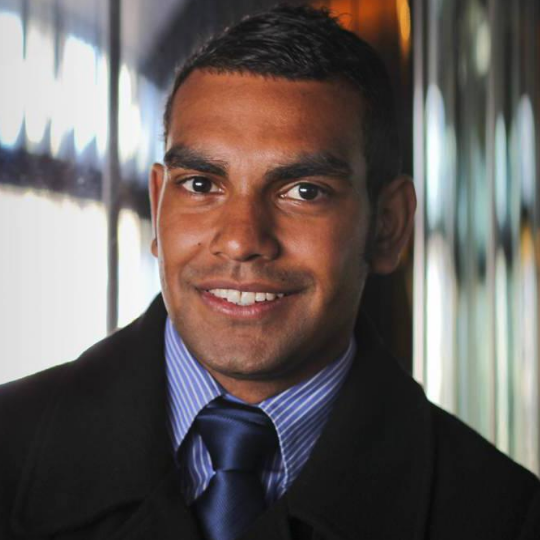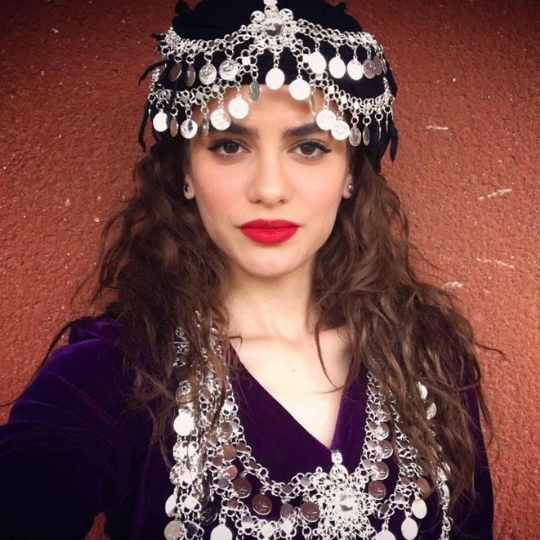To raise awareness of the needs of indigenous peoples, the world celebrates and highlights the International Day for Indigenous Peoples.
The focus this year is on safeguarding indigenous peoples and their knowledge as we fight against the spread of the pandemic.
One Young World Ambassadors are working to advocate and uplift indigenous people across the globe in various areas including human rights, governments, business, environment, law and policy.
Below are just some of those Ambassadors and their impactful work.
Pania Newton
At nine years old Pania wrote in a time capsule that she wanted to be a lawyer to make a difference.. After working hard to achieve that- and work as a lawyer and activist for Māori land rights- she has temporarily left her law career to fulfil her purpose and responsibility to the environment for future generations.
Pania is a member of the Ngāpuhi, Waikato, Ngāti Mahuta and Ngāti Maniapoto tribes. She co-formed the protest group called SOUL — Save Our Unique Landscape — to stop the nearly 500 homes being built near their village, their ancient burial caves, the Ōtuataua Stonefields Historic Reserve, and their ancestral maunga, Puketāpapatanga-a-Hape and Ōtuataua.
Follow Pania on twitter here.

Benson Saulo
Benson Saulo has made history becoming Australia’s first Indigenous Consul-General appointed to the United States of America. He is descendant of the Wemba Wemba and Gundjitmara nations of western Victoria, Australia and the New Ireland Provence of Papua New Guinea. He is the Founding Director of the National Indigenous Youth Leadership Academy, which engaged Indigenous young people to lead positive change in communities across Australia through youth-led social action initiatives. Benson is current board member of the National Commission for UNESCO.
Follow Benson Twitter here.

Beliza Coro
Beliza originally hails from Ecuador and was the first indigenous Puruwá to attend a One Young World Summit. Born and raised in an indigenous community, she grew up working in a local market selling fruits and vegetables. Thanks to a scholarship granted by Telefónica and Hanns Seidel Foundation, she was able to study, graduate as a lawyer in Ecuador and make her way to Madrid where she works in the Legal team at Telefonica.
Beliza works as an Expert Lawyer in Governmental Projects for Latin America and for the Regional Director in Latin America of the Telefónica Group.
Since 2012, she has worked with non-profits, universities and multinational companies to raise awareness of her story, and topics such as: self-leadership, female empowerment and leadership, and importance of education within indigenous communities.
Follow Beliza on twitter here.

Anna Hohag
Anna is a Paiute (Nüümü) woman and a citizen of the Bishop Paiute Tribal Nation, born and raised in her tribal community in Bishop, CA. She studied Indigenous Peoples Law & Policy and Water Policy and works as an attorney barred in the State of California. Her focus is advocating for Native communities, particularly in California. Anna served as the Area 1 Representative for the National Native American Law Students Association (NNALSA), President for her local NALSA chapter at The University of Arizona, and is a board member of the California Indian Law Association (CILA).
She has successfully represented her Tribe in reaching an historic agreement with the State of California, which guarantees access to ancestral territories to continue her peoples' practice of hunting, relationship to their lands, and food sovereignty.

Nikki Fraser
Nikki has served as the Youth Representative of the British Columbia Native Women’s Associations and the National Youth Representative for the Native Women’s Association of Canada, an organization that seeks to advance the wellbeing of aboriginal women and girls, as well as their families and communities, through activism, policy analysis and advocacy.
She advocates for indigenous women and girls in Canada and worldwide, including the 2016 United Nations Permanent Forum on Indigenous Issues, and interviewed Prime Minister Justin Trudeau, discussing with him the challenges faced by indigenous communities and efforts to safeguard their rights. Her next project—Uniting our Voices (UOV)—will work to increase not only the indigenous voices in government at all levels but also the variety of those voices.
Follow Nikki on twitter here.

Savina Dawood
Savina is an Assyrian woman and the co-founder of Etuti Institute, a non-profit educational organization with the vision “Generations of Leaders” aiming to educate, enable, and empower children, youth and women in the Assyrian homeland and other countries where they reside. She is a strong activist for the rights of the indigenous Assyrians living across the Middle East. She has been volunteering for Assyrian rights organizations since she was a child and she is involved in activism for Assyrians in North America, Europe, and the Middle East.
She also campaigns to raise awareness about the Assyrian Genocides and ethnic cleansing. She has been featured on podcasts about being Assyrian and spoken at a number of conferences about her identity and the struggle of her people in their indigenous lands.
Follow Savina on Twitter here.

Mary Moeono-Kolio - Samoa
Mary advocates for both educational equity and climate justice for indigenous peoples in her roles as Lead Adviser for the Ministry of Education in Wellington, New Zealand and member of the Commonwealth Youth Forum 2020 International Taskforce. She also advocates that a restorative justice approach alongside the inclusion and valuing of indigenous knowledge must underpin development of solutions as well as decision-making. Mary believes that it is young indigenous leaders who have the energy, passion, and courage to be the innovative and compassionate thinkers that will change the world and solve climate change.
Follow Mary on twitter here.

Monica Moisin
Monica founded the Cultural Intellectual Property Rights Initiative, a movement that supports the IP rights of men and women that create and distribute traditional designs. She works with indigenous communities that have their traditional designs, patterns, etc. stolen by manufacturers that give them no compensation or credit for designs that come from their community.
They have a number of ongoing projects with indigenous communities working on intelligent solutions to guard cultural IP.
You can access free resources here.

Gwendolyn Parami
Gwendolyn has an interest in human rights which she gained from working with indigenous communities in Malaysia with UNDP. In Malaysia, she researched techniques to prevent indigenous people from having their land stolen from them. She also works for Oxfam Novib at The Hague and works on empowering young people in rural climate affected areas. She believes that the key to solving the global climate crisis is involving young people in the process.
